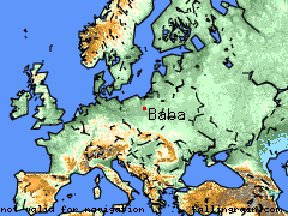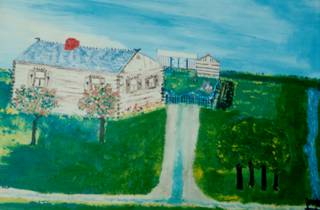"Eo sum genre gnatus." -- Platus*
Bronislaw Jozef Grala was born on October 12, 1891. At the time of his birth his parents, Jozef Grala and Antonina Gorecki, may have resided in Baba, Ostroleka, Mazowiecki, Poland. He died in New Britain, CT on October 10, 1984. In between is a history that spanned two continents and produced the wonderful family of which I am very proud.

BRONISLAW CA. 1909
When Bronislaw first arrived in America in 1909, he gave his last permanent address as Baba. He moved his family back there in 1921. In 1928, he returned to New Britain, CT ahead of them and took a job with Stanley Works where where he never missed a day of work in 30 years! These events alone paint a picture of a tenacious, adventurous man. Imagine the strength and determination it must have taken to pack up and move a family from one contingent to another ... not once, but twice!
Cousin Cynthia found this photograph of a woman who is most probably one of Bronislaw's sisters! We were fortunate that the father of Cousin Cookie's student was able to translate it for us: The inscription on the back reads, "To ja, siosta, kochany bracie i wnuczka moja, to jest starszezego tosyna corka." The way to say it in English would be, "It is I, your sister, my lovely brother, and my grand daughter from my older son. It is my son's daughter."


*Such is the stock I spring from.


